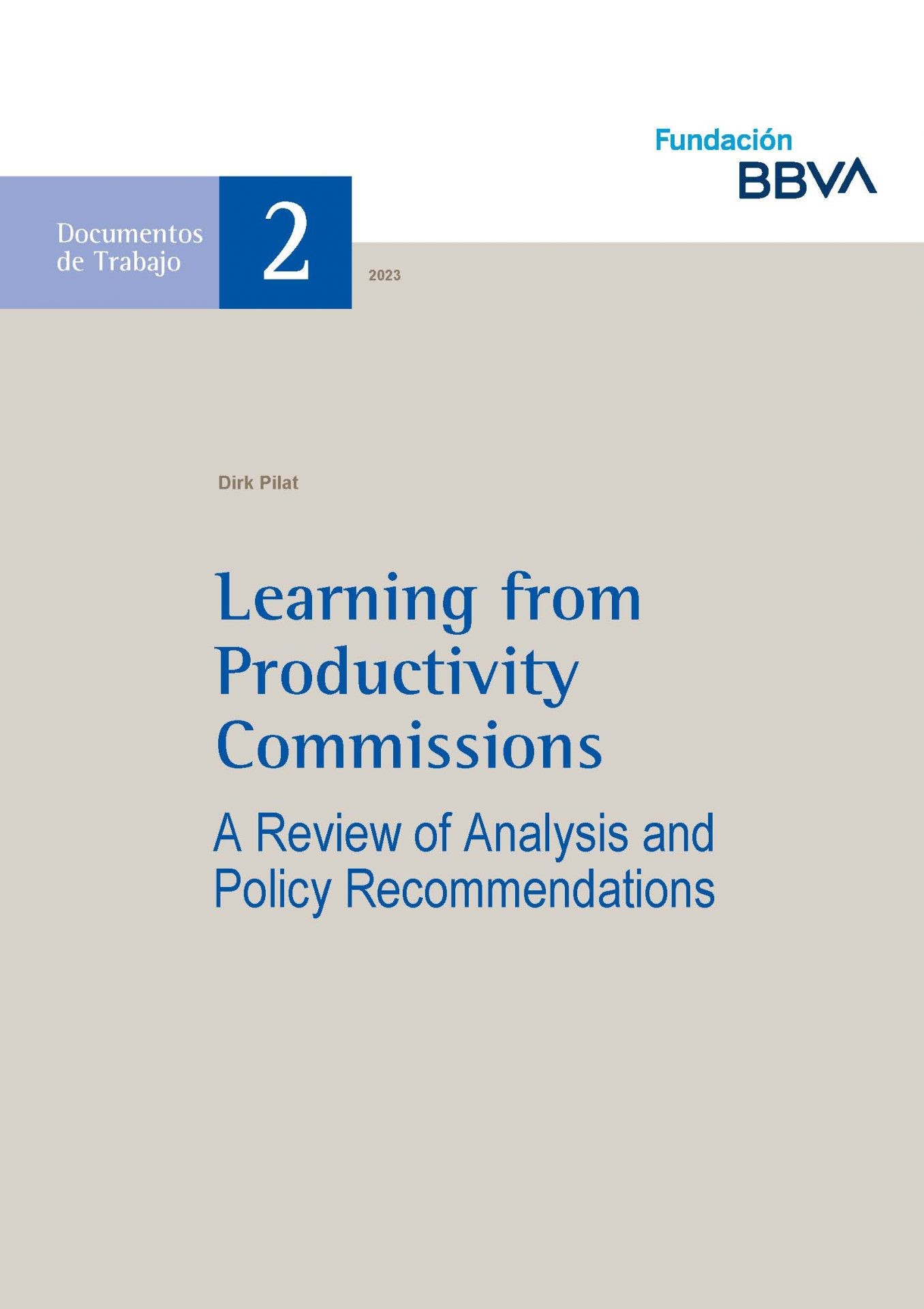
PublicationWorking Papers2/2023
Learning from Productivity Commissions
A Review of Analysis and Policy Recommendations
To inform work by Ivie’s Observatory of Productivity in Spain, this paper reviews the recent analytical work and policy recommendations on productivity of eleven national productivity commissions, i.e., Australia, Belgium, Chile, Denmark, Finland, France, Germany, Ireland, New Zealand, Portugal and the United Kingdom.
The paper finds considerable diversity in the work of the productivity commissions, reflecting differences in mandates, degree of independence and available resources, amongst others. Boards have much more in common in their analytical and policy work. This likely reflects common challenges, such as the overall slowdown in productivity and the recent COVID-19 crisis; broader underlying trends affecting productivity such as digitalisation and changes in globalisation and global value chains; and a shared understanding of the main drivers of productivity, notably investment, skills and human capital, as well as innovation, technological progress and creative destruction. National contexts and priorities differ, and what may be considered important in one country is not necessarily central to discussions in another. Comparing experiences with those of other countries can help provide context and generate ideas for further reflection in the work of other commissions or for countries, e.g. Spain, that may be considering the establishment of a productivity commission in the future.
The rise of productivity commissions across the OECD area and the European Union provides a rich source of analysis and policy learning that should be drawn on by academics, policy makers and others interested in productivity. Countries that have not yet established their own board, such as Spain, may therefore wish to set one up to benefit from this new and important source of policy learning on productivity, a core driver of economic and social wellbeing. Moreover, such countries may wish to draw on lessons learned in establishing these institutions, e.g., in ensuring their analytical independence and in providing access to all the necessary data to inform proposed policies and interventions with sound evidence.
